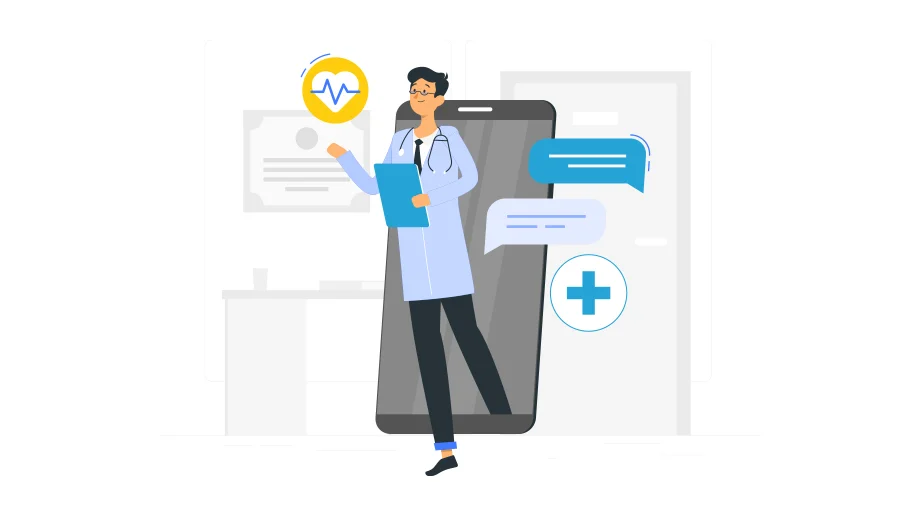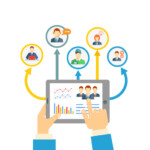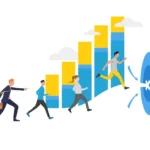Healthcare providers in a variety of industries, such as home health, community health, and hospice, have traditionally used paper forms. These forms are utilized to record their caregiver’s daily visit logs among other logistical recordings. Today, paper forms are increasingly being replaced by mobile forms app.
These methods have been prone to errors that only multiply as the scale of your operation. Errors range from data entry mistakes to plain old “dog ate my forms.” Transcribing hand-scribbled notes during patient visits is also challenging. Old-school digital technologies (PDFs, Excels) have gone a long way in mitigating some of these issues but are not ideal.
These order entry methods cost an enormous amount of time and money. For field healthcare providers, writing daily summaries by hand can be both tedious and time-consuming. Trying to recall details for later recording can lead to hindsight bias, potentially impacting the accuracy of the information provided.
Paper printouts of relevant caregiver forms including duty checklists and daily log forms are also very expensive and wasteful. All these limitations reduce the productivity of the healthcare providers to improving your clients’ at home health care experience.
Use of Mobile Forms App in Healthcare Industry
To fully leverage modern tools and meet stringent state and federal regulations, healthcare providers employing caregivers must adopt mobile phones and caregiver apps. These tools provide constant connectivity and instant access to current patient information.
Healthcare providers, small and large, are turning to caregiver mobile apps to use advanced form capabilities that are otherwise not available on paper. Apps can store forms and other related data in a secure and reliable cloud system.
Form data can be available on multiple systems for multiple users and can easily share evolving information in real time. Additionally, automation allows the configuration of alerts based on data input in real-time.
Mobile forms app eradicates the hassle and cost of paper forms. The flexibility offered by creating, editing, and sharing forms in real-time establishes mobile forms as an advantageous supplement in any industry with field employees, notably the healthcare industry.
In this blog post, we will explore how mobile forms app are transforming the caregiving landscape, benefiting both caregivers and businesses alike.
How Mobile Forms App Help Businesses & Caregivers
1. Streamlining Caregiver Tasks
Caregivers often juggle multiple responsibilities throughout the day. Mobile forms app designed specifically for caregivers offer an efficient way to manage tasks, appointments, and important information. Some key points to consider include:
Caregiver Daily Log Apps: These apps enable caregivers to record daily activities, medication schedules, meals, and other essential information about their patients. This not only helps caregivers stay organized but also ensures that important details are not overlooked.
Caregiver Duty Checklist: Mobile apps can provide caregivers with digital checklists of tasks they need to perform during their shifts. This feature ensures that all necessary duties are completed, promoting better patient care.
Real-time Communication: Mobile apps facilitate instant communication between caregivers, patients, and their families. Whether it’s sharing updates, asking questions, or addressing concerns, real-time communication enhances the quality of care.
2. Enhancing Business Efficiency:
Mobile forms app doesn’t just benefit caregivers; they also contribute to the efficiency and success of caregiving businesses. Here’s how:
Caregiver Evaluation Forms: Businesses can use mobile forms app to conduct regular evaluations of caregivers’ performance. This data-driven approach helps identify strengths, areas for improvement, and training needs.
Reduced Administrative Burden: Paperwork can be a major time sink for caregiving businesses. Mobile forms app enable digital record-keeping, reducing paperwork and minimizing the risk of errors.
3. Improving Quality of Care:
Ultimately, the use of mobile forms app contributes to an improved quality of care for patients. Here’s how:
Accurate Information Sharing: Caregivers can access up-to-date patient information, ensuring that they have the necessary details to provide personalized care.
Faster Response to Emergencies: In urgent situations, quick access to medical histories and contact information can be lifesaving. Mobile apps facilitate rapid responses to emergencies.
4. Data-driven Insights:
Mobile forms app generate valuable data that caregiving businesses can leverage to make informed decisions:
Trends and Patterns: By analyzing data from caregiver evaluation forms and daily logs, businesses can identify trends and patterns that influence their caregiving approach.
Operational Improvements: Insights from mobile forms can highlight operational inefficiencies and areas where additional training or support is needed.
How Can Mobile Forms App Help Comply with EVV Requirements?
Home-care service providers are heavily dependent on the use of multiple forms for their daily tasks. Under the 21st Century Cures Act, all Medicaid personal and home healthcare providers have to implement Electronic Visit Verification (EVV) by 2019.
The Federal EVV mandate requires affected providers to electronically verify: the type of service performed, the member receiving the service, the date of service, the location of service delivery, the care provider responsible for the service, and the time the service begins and ends. Use mobile forms as a simple solution to reporting this variety of data.
1. Handle Unforeseen Circumstances with GPS Location
Tackle any sudden maintenance or repair issues with customized reporting and tagged GPS location. Messaging, signature collection, and photo capabilities can supplement any healthcare scenario.
2. If-This-Then-That Workflow
The allGeo platform also supports a powerful IFTTT (If-this-then-that) workflow rules engine. The IFTTT rules engine translates real-world events to trigger business actions.
With this, you can define your business workflow and allGeo can automate field operations using real-world triggers involving people, places, and time. Both events and subsequent triggers can be highly customized for your business’s specific workflows.
Conclusion
Incorporating mobile forms app into caregiving practices benefits both caregivers and businesses. These tools streamline caregiving tasks, enhance business efficiency, improve the quality of care, and provide valuable data-driven insights. As technology continues to evolve, embracing mobile solutions will undoubtedly play a pivotal role in shaping the future of caregiving, making it more effective, efficient, and compassionate than ever before.
allGeo is a cloud-hosted, carrier-grade location and messaging platform that helps SMB and Enterprise businesses better manage their mobile employees by improving productivity and accountability, while reducing payroll and operations costs with solutions such as GPS tracking & time clock, Lone worker safety, Automation of field activity monitoring, Mobile forms & data collection including signature, notes, pictures, barcode/QR code, etc. The allGeo platform enables these solutions across a wide range of industries such as field service management, trade services, emergency responders, sales reps, transportation & logistics, and home health care providers.


